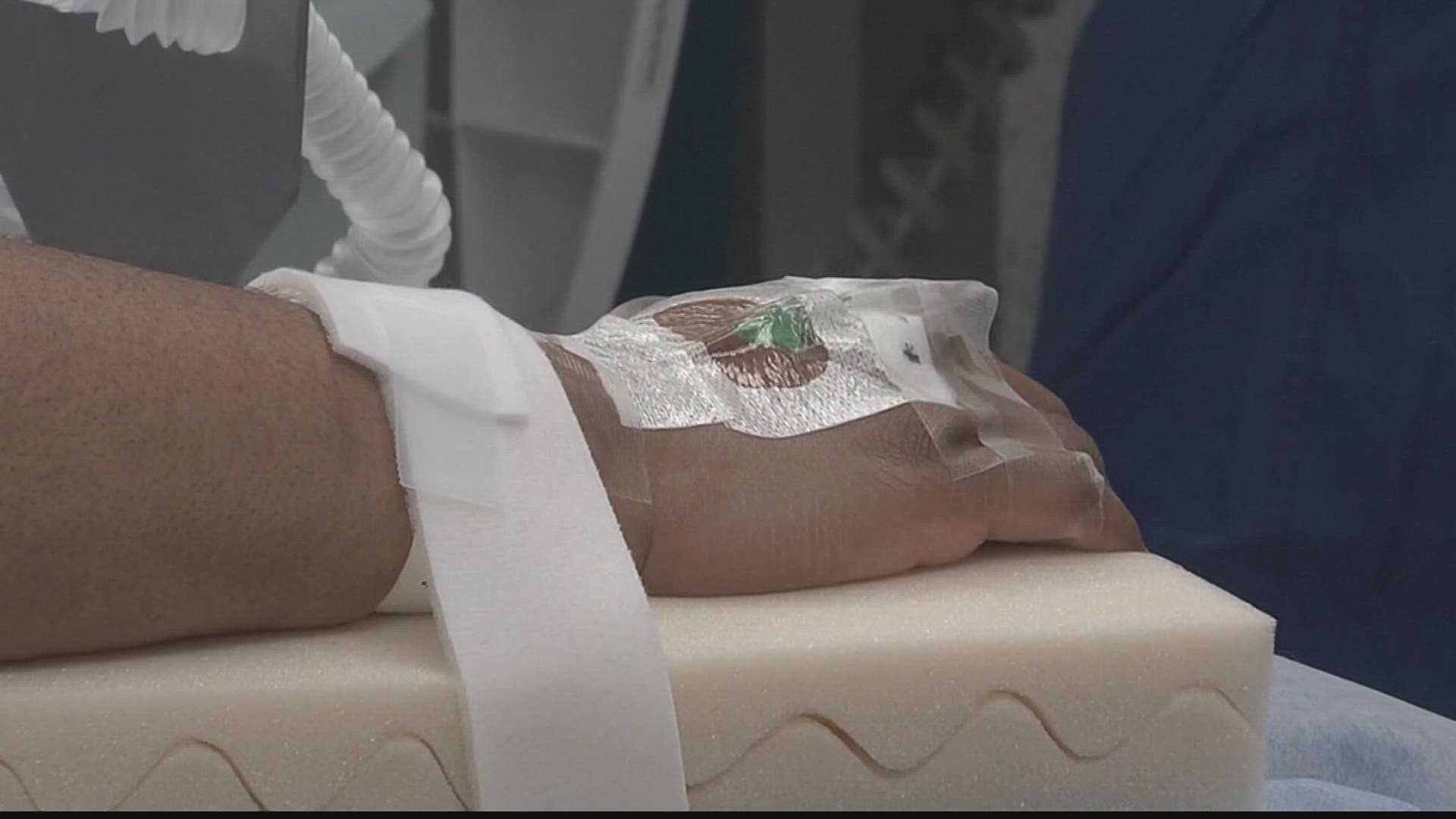ATLANTA — Deon Millington is the first person in her family to be born with sickle cell disease. While her other relatives have the trait for the disease, she described how she had to navigate her childhood carefully.
"As a kid, I just remember mostly like when I would get admitted in the hospital, I'd be in their holidays months at a time," she told 11Alive's Karys Belger on Sunday. "I would miss a lot of school. I was very active though."
According to the Centers for Disease Control and Prevention, Sickle Cell Disease is a group of inherited hereditary blood disorders. The condition primarily impacts people of African descent. The condition also appears in those with origins in the Caribbean, South, and Central America.
The condition causes the normally round and flexible red blood cells to take on a rigid, "sickled" shape. This is how the condition gets its name.
Millington tells 11Alive that her family is Guyanese. As the mother of two daughters, ages 10 and sis, she says she's now teaching them about the condition and there are times when her oldest steps in to help her when she's not feeling her best.
"My ten-year-old, she's like 20," she said. "She's mature. She's probably my mom when I'm not, like, when I'm sick. She's the mom of the house."
The condition can cause a number of complications including painful episodes called a "crisis." Other times, patients experience organ failure and a condition known as Acute Chest Syndrome.
Millington says the pain she's experienced with a crisis is unlike anything else she's known.
"So if you're a mom and you recall having contractions when it's time to have a baby, sickle cell pain is to me is ten times worse than that to me," she said.
Blood transfusions are common for some people living with Sickle Cell Disease. Millington tells 11Alive she had to have one after the births of each of her daughters.
She also explained, that her doctor will recommend a transfusion when her hemoglobin count drops to a certain level. Hemoglobin is a protein in red blood cells that carries oxygen. A low hemoglobin count typically implies that the body id not making enough healthy red blood cells to help carry out essential functions.
Evan Peterson is the communications manager for the American Red Cross of Georgia. He said more blood donors from diverse backgrounds will go a long way to meeting the demand.
"The closer the match is to the individual needing the actual blood, the healthier it's going to be, the better their body is going to receive it," he said. "And that's exactly what we want for our clients."
The Red Cross has partnered with historically Black organizations during the month of September like the nine fraternities and sororities that make up the National Pan-Hellenic Council, also known as the "Divine Nine."
Peterson says Sickle Cell Awareness Month is an opportunity to educate the public on the need for more donors by showing who benefits from donations.
It's something Millington said she does think about. While she's never gone without, she hopes she's never in a position where she has to wait for a valuable donation.
"Us waiting on the blood is definitely a life or death situation for us, you know what I mean?" she stated.
She hopes people will continue to learn about the condition beyond the month of September and hopefully feel encouraged to roll up their sleeves.
"Most of us that have sickle cell are of color, you would take that weight off of our shoulders just knowing that we had those donors," she said.
You can find a place to donate and sign up here.

